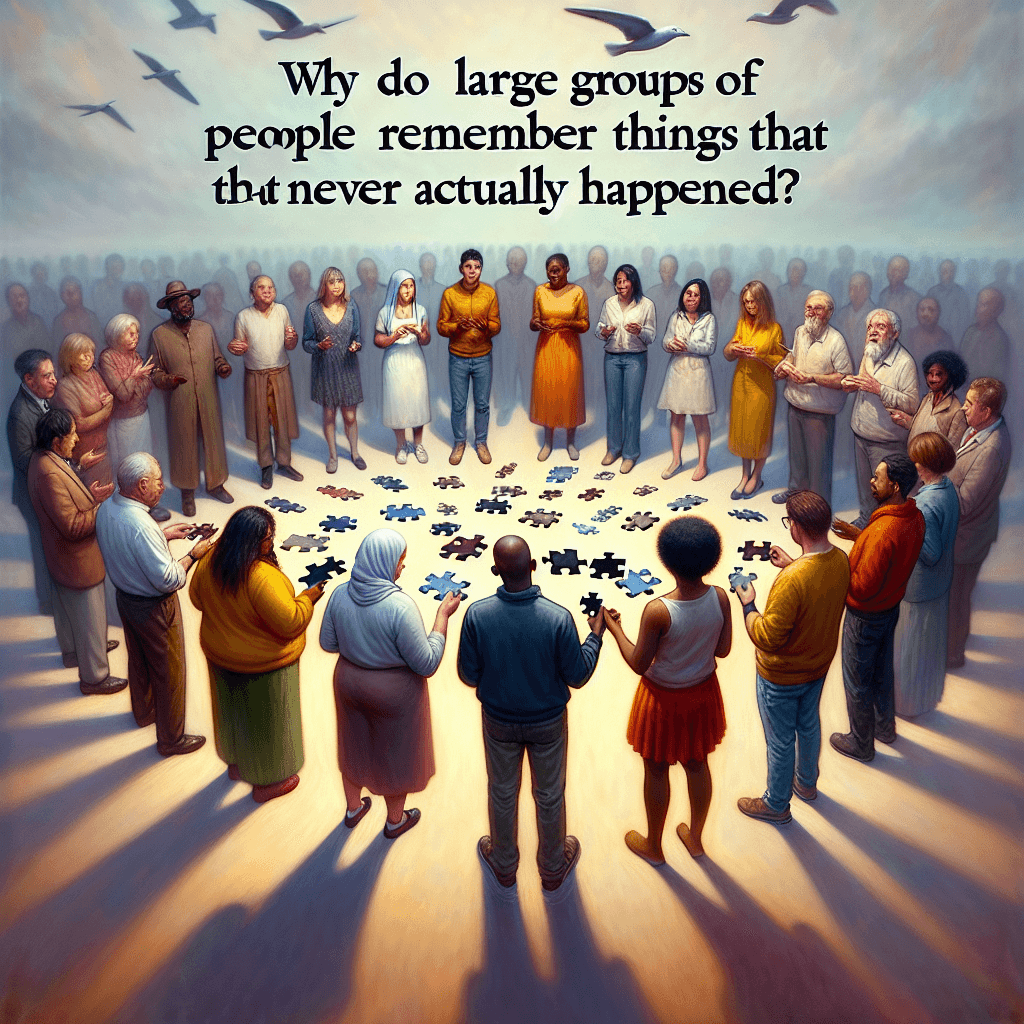Why do large groups of people remember things that never actually happened
Discover the bizarre psychological glitch that causes millions of strangers to share the exact same, vivid memories of a past that never actually existed.


Too Long; Didn't Read
TLDR: Our memories are not perfect recordings; our brains reconstruct them by filling in gaps with logical-seeming information. When many people are exposed to the same incorrect suggestion, often online, or their brains all make the same logical error to fill in a memory gap, a shared false memory is created.
The Mandela Effect Explained: Why Do Large Groups of People Remember Things That Never Actually Happened?
Do you distinctly remember the loveable children's book characters as the Berenstein Bears? Or perhaps you recall the famous movie line, "Luke, I am your father." What if I told you it was always the Berenstain Bears and the actual line is, "No, I am your father"? If you feel a sense of cognitive dissonance, you're not alone. This phenomenon, where large groups of people share a specific, detailed memory of something that never occurred, is known as the "Mandela Effect." It's a fascinating glitch in our collective consciousness that reveals just how fallible and creative the human mind can be. This post will explore the psychological mechanisms that explain why so many of us remember a history that isn't quite right.
What is the Mandela Effect?
The term was coined in 2009 by paranormal researcher Fiona Broome after she discovered that she and many others shared a false memory of South African anti-apartheid leader Nelson Mandela dying in prison in the 1980s. In reality, Mandela was released from prison in 1990 and passed away in 2013. Since then, the internet has unearthed countless other examples, from the Monopoly Man’s non-existent monocle to people recalling a 1990s movie called "Shazaam" starring the comedian Sinbad, a film that was never made.
While some theories propose alternate realities or parallel universes, psychology offers a more grounded explanation for these widespread memory errors.
The Psychology Behind Shared False Memories
Our memory isn't a perfect video recorder. Instead, it's a reconstructive process, constantly being edited, updated, and influenced by new information. Several key psychological principles work together to create these shared false recollections.
1. Suggestibility and the Misinformation Effect
The human mind is highly suggestible. The misinformation effect, a concept heavily researched by cognitive psychologist Elizabeth Loftus, shows that our recollection of an event can be altered by information we encounter after the event has occurred. In the digital age, this is amplified.
Imagine someone on a popular forum posts, "I can't believe the Monopoly Man doesn't have a monocle!" Thousands read this, and the suggestion plants a seed. Their brain, trying to picture the character, might add a monocle because it fits the "rich old-timey gentleman" archetype. The internet acts as a massive echo chamber, repeating the false information until it feels like a genuine memory for millions.
2. Confabulation and Schemas
Our brains are designed to fill in the gaps. This process, known as confabulation, isn't lying; it's the brain's attempt to create a coherent narrative when a memory is incomplete. We do this using "schemas"—mental frameworks of what we expect to be true based on past experiences.
- Example: The Berenstain Bears. The suffix "-stein" is far more common for a surname than "-stain." Our brains, using this pre-existing schema, may have automatically "corrected" the spelling in our memory over the years to fit the more familiar pattern.
- Example: "Luke, I am your father." This version is more direct and dramatic than the actual line. It makes for a better soundbite and has been parodied and repeated so often that it has overwritten the original memory for many.
3. Source-Monitoring Errors
A source-monitoring error occurs when we correctly remember a piece of information but incorrectly remember its source. Did you see the Monopoly Man with a monocle in the game, or was it in a cartoon parody? Did you hear Darth Vader say "Luke, I am your father" in the film, or did you hear it in a TV commercial or a joke? Because our brains don't meticulously file away the source of every bit of data, we can easily misattribute a piece of pop-culture osmosis to a primary, "real" memory. The constant stream of memes, articles, and discussions about the Mandela Effect itself can ironically reinforce the false memory.
Conclusion: A Glitch in Our Minds, Not the Matrix
The Mandela Effect is more than just a quirky internet phenomenon; it's a powerful demonstration of the nature of human memory. It shows that memory is not a static recording of the past but a dynamic and often communal act of storytelling and reconstruction. Rather than evidence of a parallel universe, these shared false memories highlight the brain's incredible—and sometimes flawed—ability to process, categorize, and recall information. The fact that so many of us make the exact same mistakes is a testament to our shared cognitive wiring and cultural experiences. So, the next time you encounter a Mandela Effect, don't question reality; instead, marvel at the fascinatingly imperfect workings of your own mind.


